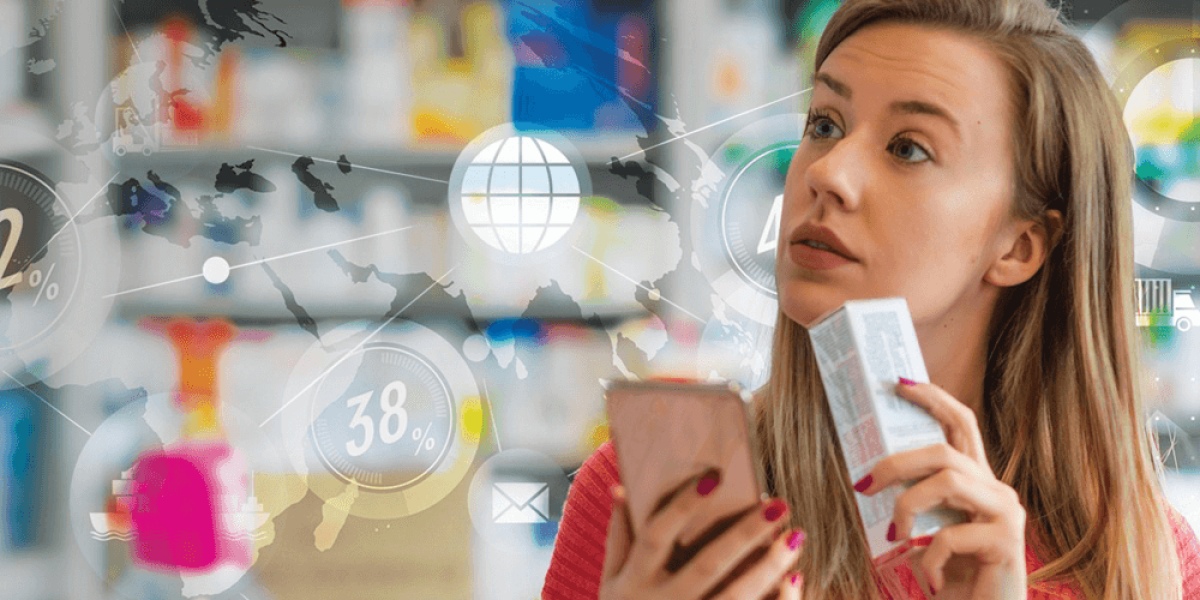
Dr. Evangelos Theodorou
Theodorou Group Chairman & CEO
The safety of food and in general of all consumer products remains the most decisive factor in the choice of products by consumers. All businesses involved in production, storage, handling and distribution are required to follow strict rules and procedures that ensure that products reach the end consumer in the correct and prescribed condition. For their part, consumers demand more and more information about the safety of the products they choose.
In the last few years we have at our disposal many new technologies that help both businesses and consumers to meet their above needs.
Safety during production - internal traceability
All companies follow specific procedures to produce safe products with specific specifications. To ensure that these procedures are faithfully followed, businesses use internal traceability systems. These systems automatically monitor and record production processes with minimal (ideally zero) human intervention. In case a mistake is made, they provide immediate information, so that an immediate reaction is possible to identify the mistake, possible withdrawal of the affected products, etc. A well-designed internal traceability system can also intervene and stop the production process in cases of very serious mistake.
The main technologies used in internal traceability systems are:
- Manufacturing Execution Systems (MES)
- Industry 4.0 systems that can monitor production machinery (IoT technologies, cameras, etc.)
- Automation systems, such as robotic systems, which minimize manual processes which are responsible for most potential errors
- Advanced coding systems that, in addition to expiration dates and LOT numbers, can print specialized information, both on the products themselves and on their packaging (boxes, pallets) in the form of two-dimensional (2D) codes. We must also make a special mention of the serialization systems that encode each product with a unique number (with 2D codes) and the aggregation systems which allow the recording of the specific products present in each box and pallet.
- Product authenticity control systems that use special codes (2D), but also other smart product identification techniques (e-fingerprint® technologies, etc.)
Supply chain - sequential traceability
The sequential traceability system tracks products as they travel through the supply chain. The implementation of these systems is particularly difficult, because there are many companies involved (handling, storage, distribution) with different procedures each, but also critical to ensure that non-genuine products and/or fraudulently falsify them are not introduced into the supply chain.
The main technologies used in sequential traceability are:
- Platforms that include information about the handled products and the procedures followed at each stage of the handling. This information must be accessible to all involved
- Automation systems, such as automated warehouses that minimize the possibility of human error
- Special sensors of temperature, humidity, acceleration, etc. that record product handling conditions
- Coding systems and especially serialization, aggregation and authentication solutions, as they were used and implemented during the production process
To optimize product security, the trend is to use smaller, faster, flexible and reliable supply chains, where possible.
Consumer information
With smartphones at their disposal, consumers are looking for information related to:
- The suitability of the product for consumption by a specific person (allergies, etc.)
- The production conditions of the product, the origin of the raw materials, the handling conditions etc
With the satisfaction of their customers’ requirements as their primary concern, manufacturing companies use printed information on their product packaging, but also refer to online platforms per product by scanning a 2D code. On these platforms the consumer can find solid information about the product. In the most “intelligent” online platforms, however, much more information is provided that is related to the specific product that the consumer has in his hands, such as the serialization number, the production conditions, etc. These online platforms can draw information both from the internal systems, as well as from sequential traceability systems.

Conclusion
Every company involved in the production, handling and distribution of consumer products must strictly adhere to the basic procedures and systems that ensure the products’ safety. Consumers choose products based on the trust they have both in the producers and in their distribution points.
 Dr. Evangelos Theodorou is the President & CEO of Theodorou Group. He holds a degree in Electrical and Mechanical Engineering – NTUA (National Technical University of Athens) and holds a Ph.D. in Electronic Systems from the University of Cambridge, England. He has been a lecturer at the Department of Electrical and Mechanical Engineers of the NTUA.
Dr. Evangelos Theodorou is the President & CEO of Theodorou Group. He holds a degree in Electrical and Mechanical Engineering – NTUA (National Technical University of Athens) and holds a Ph.D. in Electronic Systems from the University of Cambridge, England. He has been a lecturer at the Department of Electrical and Mechanical Engineers of the NTUA.


